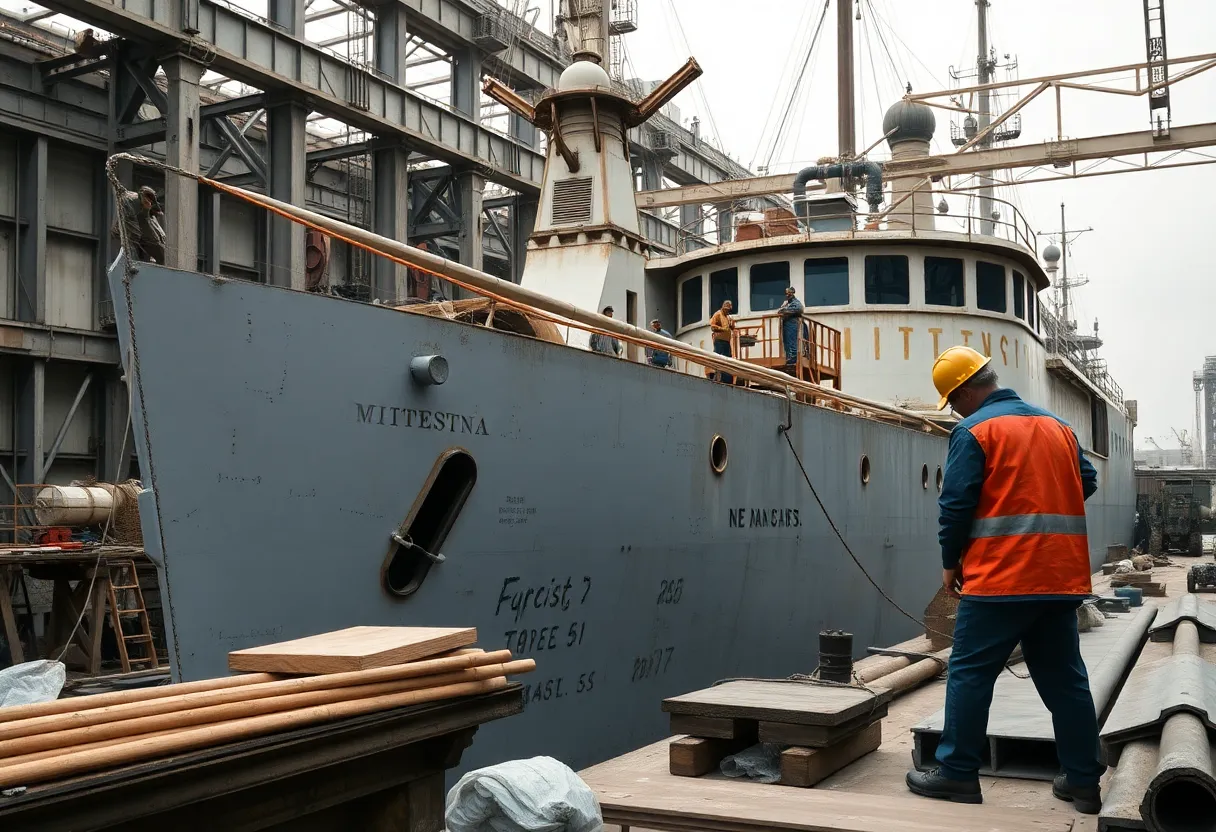News Summary
The USS Eversole (DD-789), a Gearing-class destroyer, served from 1946 to 1973, exposing thousands of crew members to harmful asbestos. This material, once deemed essential for ship safety, is now linked to severe diseases like mesothelioma. As many veterans confront health issues decades later, legal support and compensation avenues are crucial. The ongoing risks of asbestos usage highlight the need for improved safety practices in military service, urging affected individuals to seek medical evaluations and justice.
Former USS Eversole Crew Exposed to Asbestos Face Health Risks
The USS Eversole (DD-789), an iconic Gearing-class destroyer that served the U.S. Navy from 1946 to 1973, represents a stark reminder of the health perils associated with asbestos exposure. Built during an era when asbestos was considered essential for naval vessel safety, thousands of men who served onboard are grappling with devastating health outcomes today.
Asbestos: The Hidden Enemy Onboard
Asbestos was extensively used throughout the USS Eversole, from her propulsion systems to the vessel’s structural components. The Navy mandated the use of this material to enhance thermal insulation, fire resistance, and overall durability of the ships. This woeful oversight has led to many former crew members suffering from pleural mesothelioma, asbestosis, and other serious respiratory diseases, raising questions about the Navy’s historical commitment to the health of its service members.
Service and Construction Details
The USS Eversole was built by Todd-Pacific Shipyards in Seattle, Washington, and launched on January 8, 1946. This destroyer, weighing 2,425 tons and measuring 390 feet, wasn’t just any ship; she earned seven battle stars during the Korean War and even played roles in the Vietnam conflict. While the ship was a beacon of American naval power, the asbestos used in her construction would later cast a shadow over that legacy.
Health Consequences Surface Decades Later
Former members of the USS Eversole’s crew face alarming health challenges, often surfacing decades after their service. Many do not realize they are at risk until symptoms emerge, which can happen anywhere from 20 to 50 years post-exposure. Asbestos fibers, once airborne from deteriorating materials, become lodged in the lining of lungs and abdominal organs, leading to life-threatening ailments.
The Asbestos Exposure Timeline
Upon commissioning in 1946, the USS Eversole quickly transitioned to active duty, involved in various operations in Asia and Korea. Crew members remained in close quarters, where the risk of inhaling toxic fibers was heightened during maintenance and routine activities. Ironically, while they faced external conflicts from enemies, the real battle for survival began once they returned home, with many discovering they were unwittingly breathing in their greatest foe: asbestos.
Legal Accommodation for Affected Veterans
The ramifications of asbestos exposure have led to a surge in legal claims among veterans. For those diagnosed with mesothelioma linked to their time onboard the USS Eversole, the Department of Veteran Affairs offers a 100% disability rating. This benefit not only provides essential financial support but also facilitates access to specialized healthcare services for managing asbestos-related diseases.
Potential for Compensation
In addition to VA benefits, former crew members may be entitled to pursue claims against manufacturers of asbestos-containing materials. Legal avenues have yielded substantial settlements and trust funds established by companies that faced bankruptcy due to asbestos liabilities. Those who served aboard the USS Eversole are urged to consult with experienced legal professionals to navigate their options effectively.
The Continued Legacy of a Dangerous Material
It’s crucial to underline that the legacy of the USS Eversole stretches beyond her commendable service. The extensive use of asbestos on military ships poses an ongoing risk to veterans and their families. As awareness grows about the health hazards associated with asbestos, efforts to secure justice for affected service members remain vital.
A Call to Action
Former USS Eversole crew members are encouraged to seek comprehensive medical evaluations and legal advice to address their health needs and pursue potential compensation. The challenges faced by these veterans serve as a constant reminder of the importance of prioritizing health and safety in military practices, ensuring that future generations can serve without fear of hidden dangers within their ranks.



















